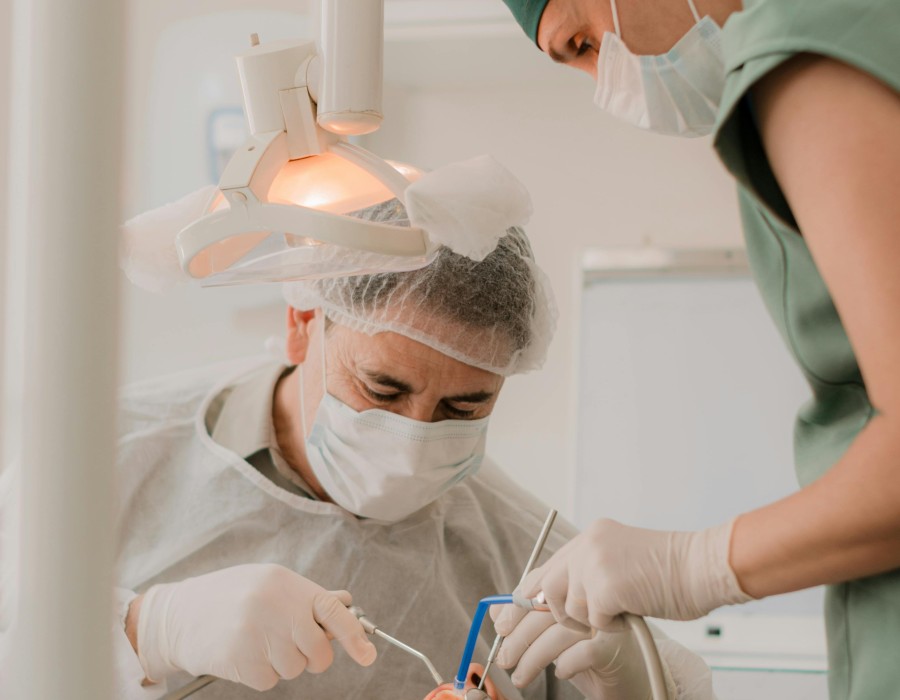Dental emergencies can strike any moment, often leaving individuals in pain and uncertainty. Understanding the situations that necessitate a visit to an emergency dentist is crucial for maintaining oral health and minimising discomfort. Being prepared can make a significant difference in managing the problem effectively, whether it’s a sudden injury, unbearable pain, or an unexpected dental issue. This article will explore scenarios requiring immediate dental attention, equipping you with the knowledge to respond promptly in an emergency.
Common Dental Emergencies: Recognizing the Signs
Dental emergencies can arise from many sources, and recognising the signs is the first step toward effective treatment. One of the most common situations requiring urgent dental care is a toothache. While not all toothaches indicate an emergency, persistent or severe pain can signal an underlying issue, such as an infection or tooth decay. If over-the-counter pain relievers fail to provide relief, it’s essential to consult an emergency dentist, as untreated dental diseases can lead to more severe health complications.
Another prevalent scenario is dental trauma, which often occurs due to accidents, falls, or sports injuries. A knocked-out tooth, for instance, is a critical situation that demands immediate attention. If a tooth is dislodged, it’s vital to carefully handle it by the crown (the part visible in the mouth) and rinse it gently with water if dirty. If possible, placing the tooth back in its socket or storing it in a glass of milk can help preserve it until reaching the dentist. Timely intervention can increase the chances of saving the tooth and restoring its function.
In addition to toothaches and trauma, broken or cracked teeth are also significant dental emergencies. These situations can arise from biting down on hard foods or experiencing trauma. A cracked tooth may not always cause immediate pain but can lead to sensitivity and infection if left untreated. Visiting an emergency dentist promptly can help address the issue, prevent further damage, and alleviate discomfort.
Understanding the Importance of Timely Treatment
The urgency of dental emergencies cannot be overstated. Delaying treatment can lead to complications that extend beyond the mouth. For instance, untreated infections can spread to surrounding tissues, leading to serious health risks. Abscesses are pockets of infection in the gums, which can cause swelling, fever, and intense pain. They require immediate dental intervention to drain the infection and prescribe antibiotics. Ignoring such symptoms can result in systemic issues, emphasising the importance of seeking prompt care.
Moreover, dental emergencies can have significant financial implications. Emergency visits often come with higher costs, significantly if treatment is delayed. By addressing dental issues early on, individuals can avoid more extensive procedures, such as root canals or extractions, which can be costly and time-consuming. Regular dental check-ups and immediate attention to emerging issues can save patients time and money, reinforcing the value of being proactive about oral health.
Preparing for Dental Emergencies: What You Need to Know
Preparation is critical to effectively managing dental emergencies. One of the first steps is establishing a relationship with a reliable emergency dentist. Knowing your options in advance can save valuable time when facing an urgent situation. Many dental practices offer after-hours emergency services or can refer you to nearby clinics that specialise in urgent care. Keeping this information readily accessible can ensure swift action during a crisis.
Additionally, it’s prudent to maintain a dental emergency kit at home. This kit can include essential items such as dental floss, a small container for storing knocked-out teeth, pain relievers, and antiseptic mouthwash. These tools can help you manage minor issues while awaiting professional care. Furthermore, familiarising yourself with basic first aid for dental injuries can empower you to act quickly and effectively in emergencies.
Another vital aspect of preparation involves educating yourself and your family about common dental issues and their signs. Encourage open discussions about oral health within the household, emphasising the importance of promptly reporting any discomfort or unusual changes. For parents, teaching children about dental hygiene and safety, especially during sports or high-risk activities, can significantly reduce the likelihood of accidents and injuries.
When to Seek Emergency Dental Care
Understanding when to seek emergency dental care is crucial for effective treatment. In addition to the situations above, specific symptoms warrant immediate attention. Persistent bleeding from the gums or mouth following an injury can indicate a severe problem that requires urgent care. Similarly, difficulty swallowing or breathing may signal a severe allergic reaction or infection that necessitates immediate medical intervention.
Furthermore, lost fillings or crowns can also qualify as dental emergencies. While they may not always cause immediate pain, exposed tooth surfaces can lead to sensitivity and increase the risk of decay. An emergency dentist can provide temporary solutions to protect the affected tooth until a permanent restoration can be made.
As we navigate our daily lives, we must remain vigilant about our oral health and be prepared for any unexpected dental issues. By understanding the signs of dental emergencies and knowing when to seek professional help, you can take proactive steps to protect your smile and overall well-being. Remember, a well-prepared individual is better equipped to handle emergencies, ensuring swift and effective treatment to preserve teeth and health.





Comments